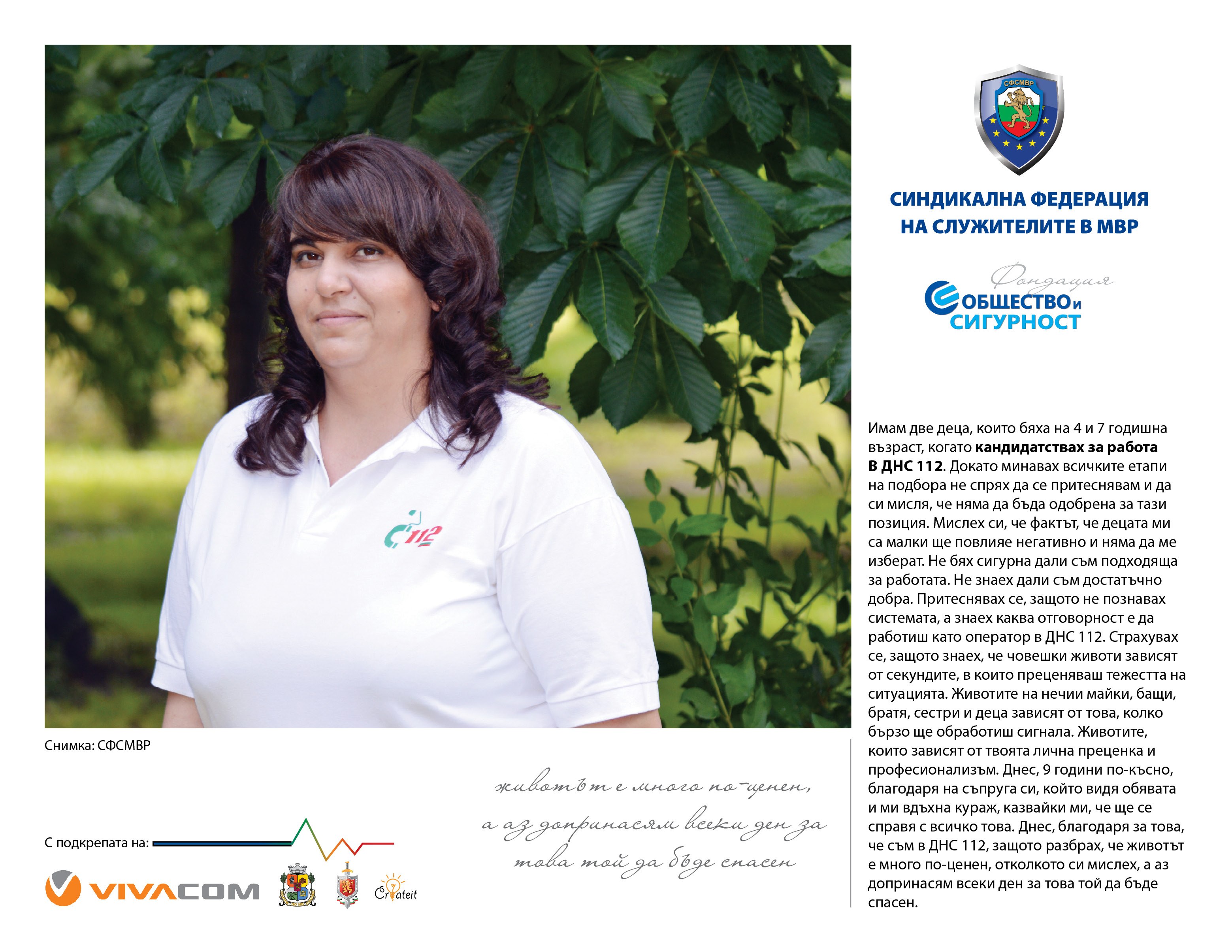- 01.09.2016
I work in National System 112
I have two children who were 4 and 7 years old when I applied for a job in the 112 Emergency line in Bulgaria. While I was passing all phases…
Read Още- 01.09.2016
The issues in National System 112 in Bulgaria
In 2015, 4,686,390 emergency calls are accepted and only 1,987,576 are real. Who is responsible for the unreal signals received? Who educates the citizens? Who and how impose sanctions for…
Read Още- 01.04.2016
There are days…
Each day is different. There are days I’d been shouted. Days when people fainted in my arms. Days when my stripes had been torn and people spat in my face.…
Read Още- 15.01.2016
Official position of the Society and Safety Foundation about the Minister of Interior’s statement
Society and Safety Foundation is one of the few civil organizations in Bulgaria which puts as a priority on its activities the improvement of the “civil security” service provided by the Ministry…
Read Още- 07.01.2016
The security we need! The reform we want!
Recent years, when we hear Ministry of Interior the associations which come to our minds are “ineffective” and “reform.”We are all aware and conscious of the fact that more and more…
Read Още- 13.02.2015
How do we see the participation of civil and professional organizations in Ministry of Interior’s reforming?
The most important element of the whole process is institutionalized of forms and procedures for citizen participation in reforming the Ministry of Interior. The second crucial component is uniting around…
Read Още- 03.02.2015
The failed reform!
Ministry of Interior is the only unreformed Ministry in Bulgaria, but also one of the ministries in which structural changes are the most numerous. One of the major structural changes…
Read Още

